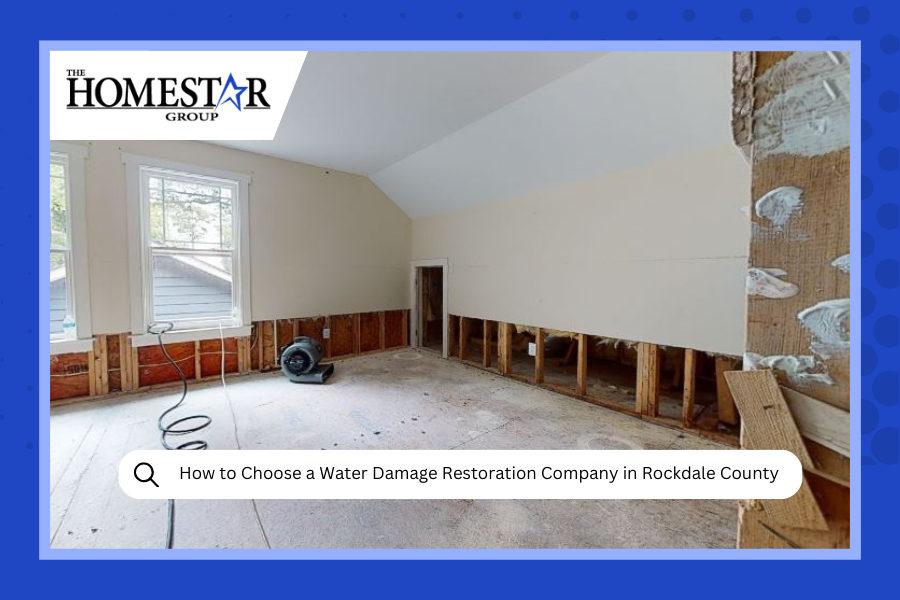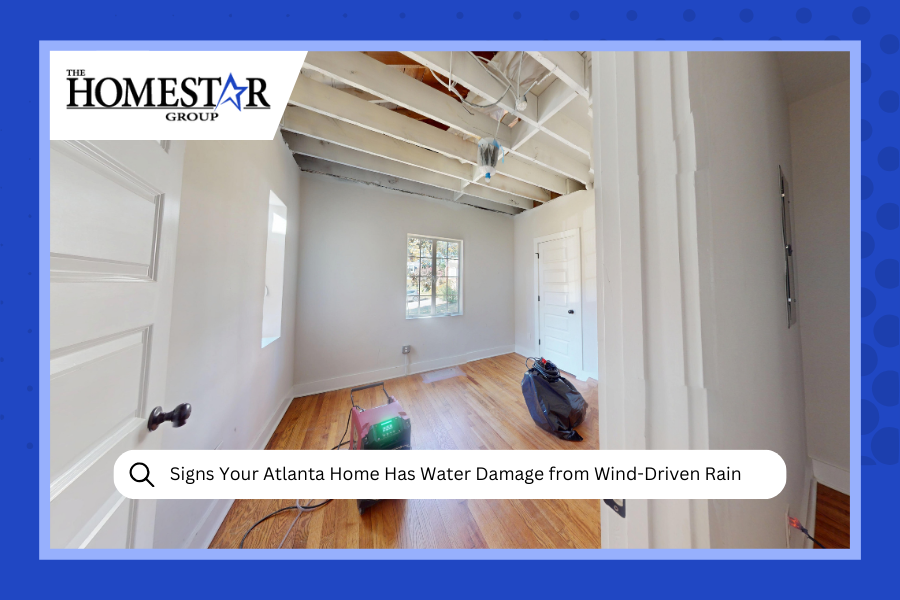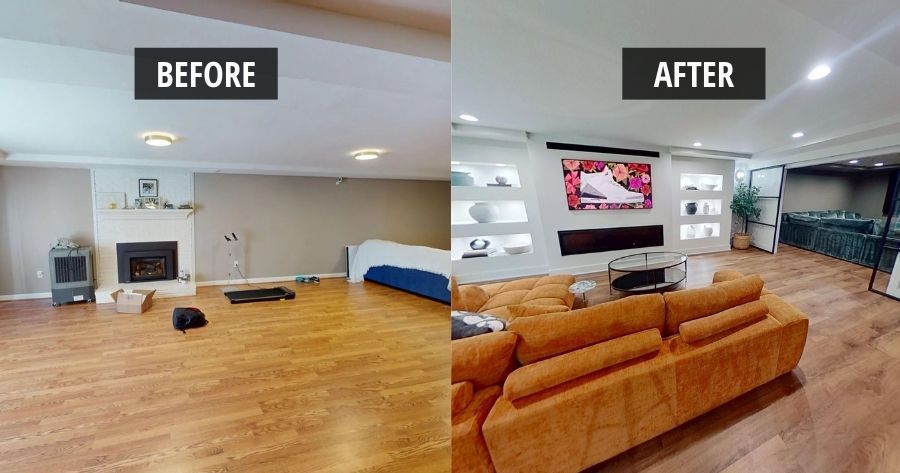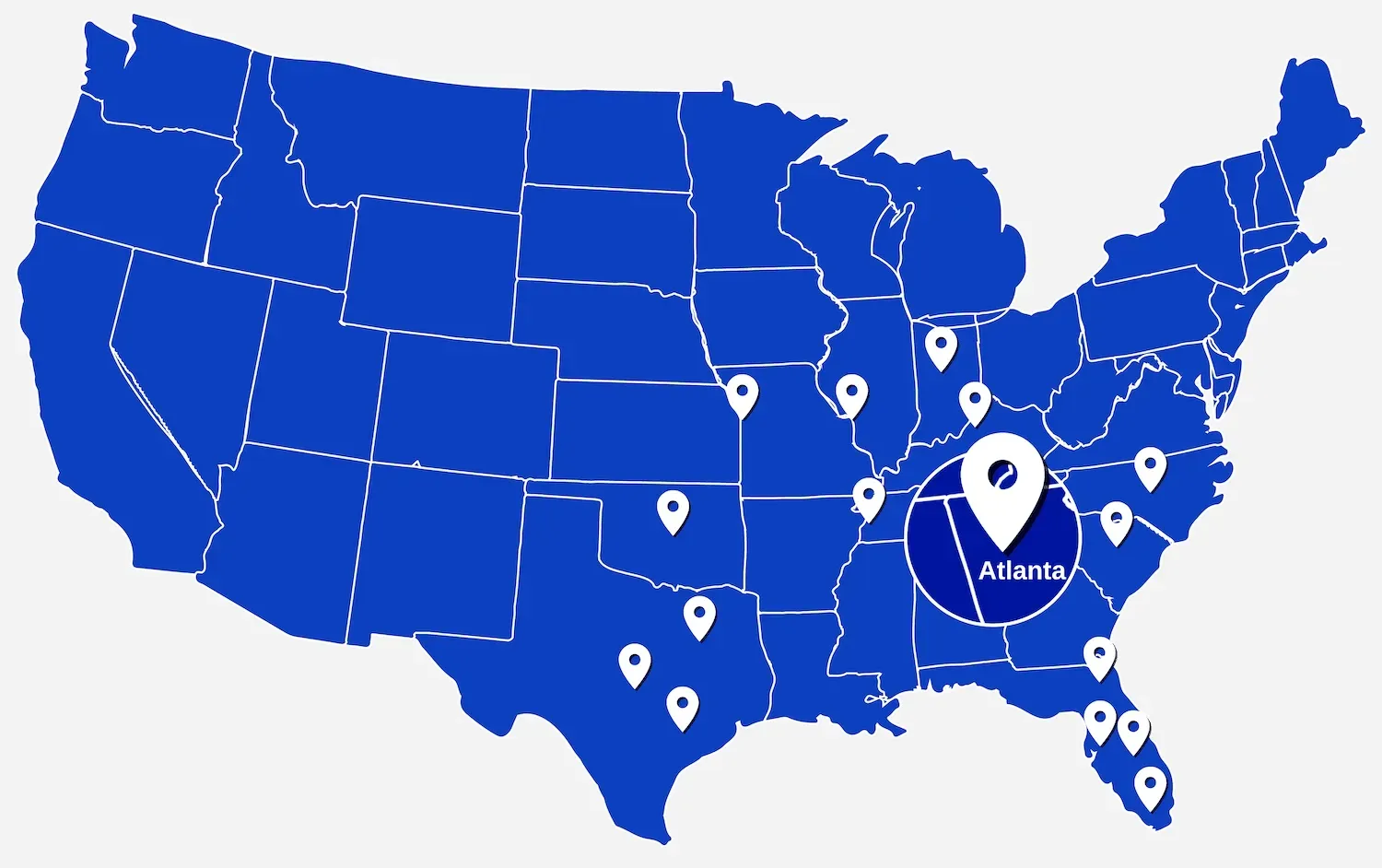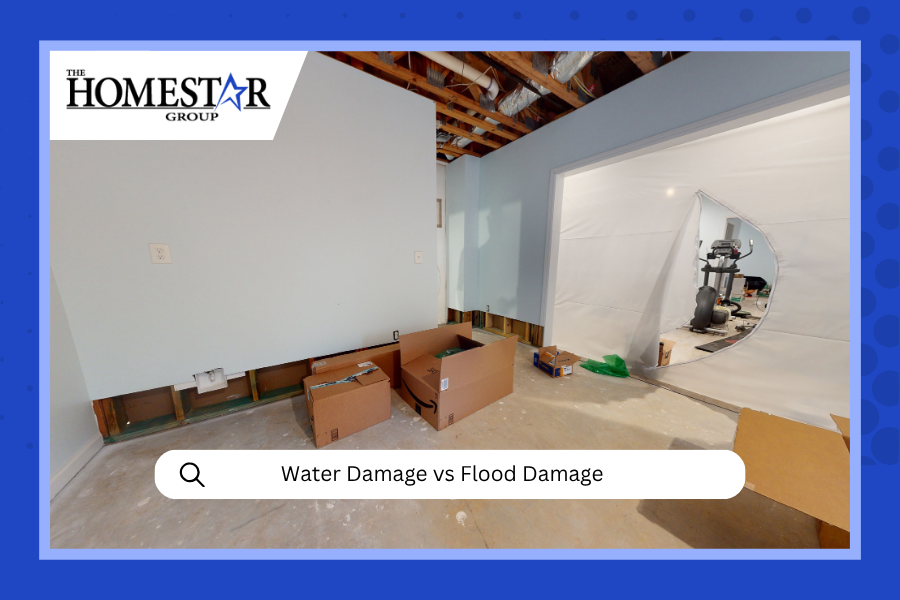
Water Damage vs Flood Damage: What's the Difference for Atlanta Homeowners?
Jump to Section
When your basement is soaking wet after Atlanta's latest downpour, you might think, "Well, this is definitely water damage." But here's where things get tricky – it might actually be flood damage, and that distinction could save or cost you thousands of dollars. We know it sounds like we're splitting hairs, but trust us, your insurance company definitely knows the difference.
As Atlanta's trusted water damage restoration experts with over 15 years of experience, we've seen plenty of confused homeowners discover this difference the hard way. Let's break it down so you're never caught off guard.
Understanding Water Damage in Atlanta
Water damage is what happens when water gets where it shouldn't be inside your home, typically from internal sources. Think of it as your home's plumbing having a bad day.
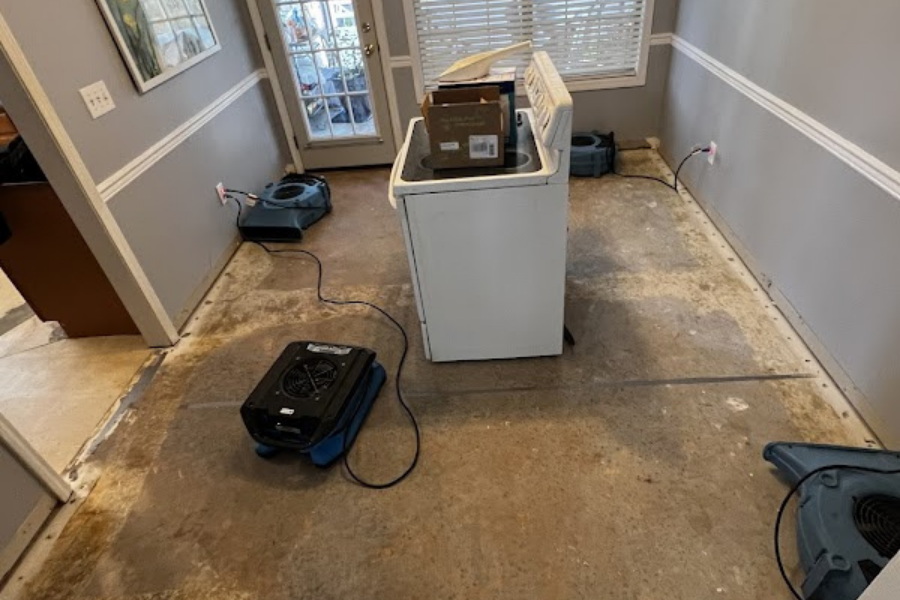
Common Causes of Water Damage
Here in the Atlanta metro area, we see these culprits regularly:
- Burst pipes (especially during those rare cold snaps)
- Leaking water heaters
- Overflowing toilets or bathtubs
- Appliance malfunctions like washing machine hose failures
- Roof leaks from damaged shingles
- HVAC condensation issues
The key thing to remember? Water damage typically starts from inside your home or from rainwater entering through your roof or walls.
What Qualifies as Flood Damage?
Flood damage occurs when water comes from outside your home and affects the ground level first. According to FEMA, flooding means "a general and temporary condition of partial or complete inundation of two or more acres of normally dry land area or of two or more properties."
Atlanta's Flood Risk Factors
Living in metro Atlanta, we deal with several flood-prone situations:
- Flash flooding from heavy thunderstorms
- Creek and river overflow (hello, Chattahoochee!)
- Storm drain backups during severe weather
- Surface water accumulation in low-lying areas
Need immediate help after flooding? Our 24/7 emergency team is standing by – contact us right now.
Water Damage
- Internal water sources
- Plumbing failures
- Appliance leaks
- Roof leaks
- HVAC issues
Flood Damage
- External water sources
- Ground-level water entry
- Storm drain backups
- River/creek overflow
- Surface water accumulation
The Insurance Coverage Difference That Matters
This is where things get real, folks. Most standard homeowner's insurance policies cover water damage but explicitly exclude flood damage. We've watched too many Atlanta families learn this lesson during stressful times.
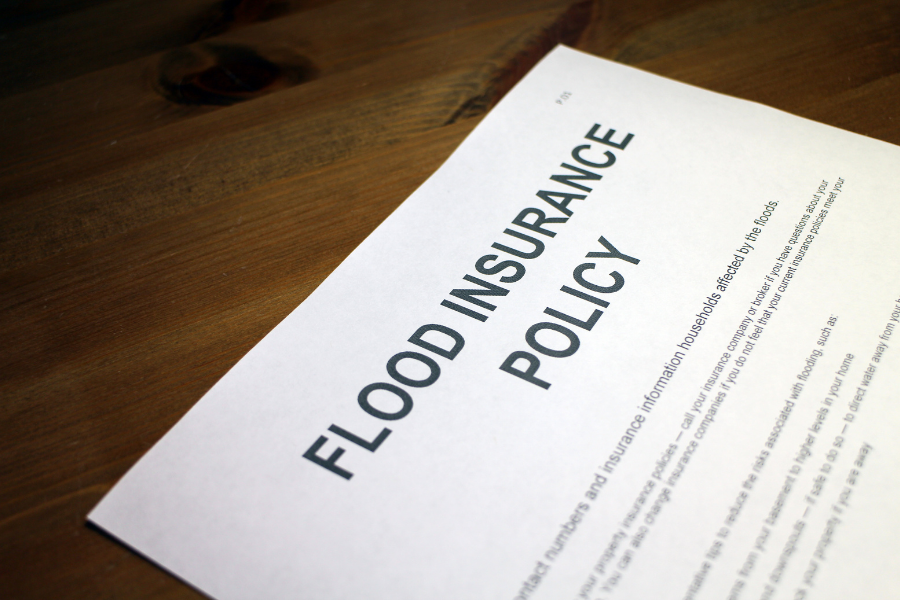
Water Damage Coverage
- Usually covered by homeowner's insurance
- Covers sudden, accidental water intrusion
- Includes most internal plumbing failures
- May cover roof leaks from storm damage
Flood Damage Coverage
- Requires separate flood insurance policy
- Must be purchased through the National Flood Insurance Program (NFIP)
- Has a 30-day waiting period before coverage begins
- Covers rising water from outside sources
Pro tip: Even if you're not in a high-risk flood zone, flood insurance can still be worth considering. About 25% of flood damage claims come from moderate-to-low risk areas, according to the National Flood Insurance Program.
How to Tell the Difference: A Quick Assessment Guide
When water invades your home, here's how to determine what you're dealing with:
| Scenario | Classification | Key Indicators | Coverage |
|---|---|---|---|
| Burst pipe in basement | Water Damage | Internal source, single property affected | Homeowner's Insurance |
| Roof leak during storm | Water Damage | Water entered through building envelope | Homeowner's Insurance |
| Surface water in basement | Flood Damage | Ground-level entry, multiple properties affected | Flood Insurance |
| Storm drain backup | Flood Damage | External water overwhelming drainage system | Flood Insurance |
| Creek overflow into home | Flood Damage | Natural water body overflowing boundaries | Flood Insurance |
Atlanta Weather Patterns and Your Risk
Our beautiful city sits in a unique position weather-wise. We get those intense summer thunderstorms that can drop incredible amounts of rain in short periods. Unlike our friends up north, we don't worry much about snow and ice, but those heavy rains and occasional tropical storm remnants keep us busy.
Since we do have basements here in Atlanta (unlike much of the South), we see plenty of both scenarios. A sump pump failure during heavy rain? That's typically covered water damage. But if the storm overwhelms the neighborhood drainage and water rises from outside? That's flood damage territory.
For comprehensive protection, consider both quality storm damage restoration services and proper insurance coverage. If you're dealing with fire-related water damage from sprinkler systems or firefighting efforts, our fire damage restoration team handles those complex situations too.
Facing Water or Flood Damage Right Now?
Don't wait – every minute counts when water invades your Atlanta home.
Get Free 24/7 Emergency HelpWhat to Do Immediately After Water Intrusion
Regardless of whether you're dealing with water or flood damage, time is critical. Here's your action plan:
First 24 Hours
- Ensure safety first – turn off electricity if water is near outlets
- Document everything with photos and videos
- Contact your insurance company immediately
- Call professional restoration services – we offer free estimates within 24 hours
- Begin removing standing water if safe to do so
- Move valuables to dry areas
Days 2-3
- Continue documentation process
- Meet with insurance adjuster
- Begin professional water extraction and drying
- Assess structural damage
The faster you act, the better chance you have of minimizing long-term damage and potential mold issues.
Understanding these differences can also help you make better decisions about prevention. Learn more about protecting your property in our detailed guide about water damage prevention tips.
Prevention Strategies for Atlanta Homeowners
While you can't control Mother Nature, you can take steps to minimize your risk:
For Water Damage:
- Inspect plumbing regularly
- Know where your main water shutoff is located
- Replace old water heater before it fails
- Clean gutters and maintain your roof
- Install water leak detectors
For Flood Damage:
- Understand your property's flood risk level
- Consider flood insurance even in moderate-risk zones
- Keep sandbags or flood barriers handy during storm season
- Ensure proper grading around your foundation
Want to learn more about protecting your Atlanta home? Check out our guide on signs of early water damage and prevention strategies.
When to Call the Professionals
Here's the thing – whether it's water damage or flood damage, both require professional attention if they're significant. DIY solutions might work for minor spills, but when we're talking about potential structural damage, electrical hazards, or health concerns from contaminated water, it's time to call in the experts.
Our IIRC-certified team at The Homestar Group has seen it all across the Atlanta metro area, from Decatur to Marietta. We handle insurance claims directly and provide 24/7 emergency response because we know disasters don't wait for business hours.
Get Professional Water Damage HelpThe Bottom Line for Atlanta Homeowners
Understanding the difference between water damage and flood damage isn't just academic – it's financial protection for your family. While the wet basement looks the same either way, the path to recovery and who pays for it can be vastly different.
The good news? Atlanta homeowners are generally pretty resilient, and with the right knowledge and preparation, you can weather whatever our Georgia storms throw your way. Just remember: when in doubt, document everything and call professionals who know the local landscape.
Whether you're dealing with a burst pipe at 2 AM or standing water after a flash flood, we're here to help Atlanta families get back on their feet. Because at the end of the day, your home should be your safe haven – not your source of stress.
Frequently Asked Questions
If my Atlanta basement floods from heavy rain coming through foundation cracks, is that water damage or flood damage?
This is flood damage. When rainwater enters your home from ground level or below due to surface water accumulation, it's considered flooding even if it's just your property. Your standard homeowner's policy won't cover this – you'd need separate flood insurance through the NFIP.
My water heater burst and flooded my basement the same day we had flash flooding in Atlanta. How does insurance handle this?
These would be treated as separate claims. The water heater burst is water damage covered by your homeowner's policy. However, if external flood water also entered your basement during the same event, that portion would require flood insurance. Document both sources clearly with photos.
Does it matter for insurance purposes if flood water reaches my Atlanta home from a neighbor's yard versus a public street?
No, the source doesn't change the classification. Whether flood water comes from your neighbor's property, overwhelmed storm drains, or nearby creeks, it's still considered flood damage. What matters is that the water originated from outside sources and affected ground level first.
If I have both water damage and flood damage in my Atlanta home simultaneously, can I file claims with both insurances?
Yes, but you'll need to clearly document which damage came from which source. Your homeowner's insurance adjuster and flood insurance adjuster will need to determine what percentage of damage is attributable to each cause. Keep detailed photos showing different water sources and damage patterns.

Jeremy York is the owner of The Homestar Group, bringing over 15 years of experience in the water and fire damage restoration industry to homeowners and businesses throughout the Atlanta metro area. Under his leadership, The Homestar Group has built a reputation for reliable 24/7 emergency response and professional restoration services backed by IICRC certification. Jeremy is committed to serving the local community and takes pride in helping families and business owners recover from unexpected disasters. His hands-on approach ensures every customer receives the care and attention they deserve during challenging times.

